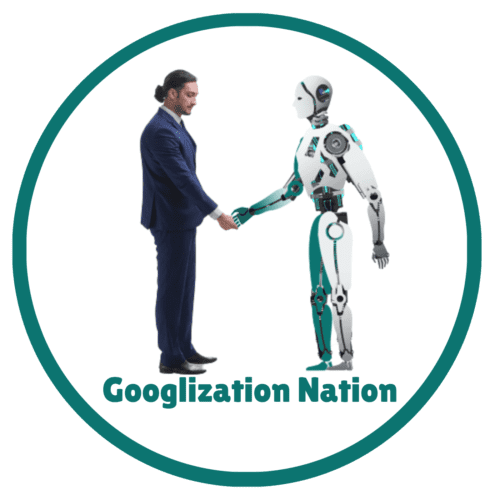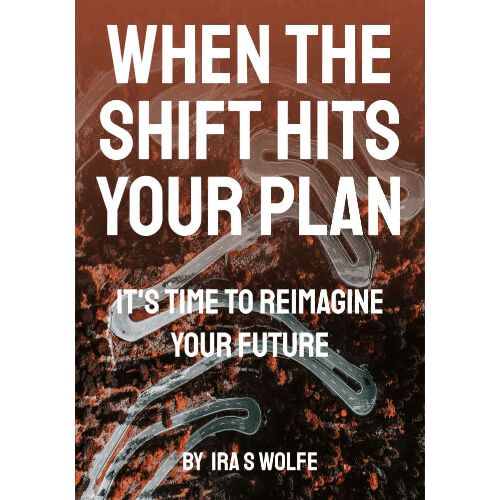Mega HR Trends 2021
An Interview with Tom Haak, HR Trend Institute
WHAT TO EXPECT
In 2021, organizations prioritizing strong ethical leadership and anti-fragility courses of action are winning. Companies placing emphasis on the more organic format of workflow-driven learning have more effective employees. But these HR trends are more complex and multi-faceted than they appear. Today’s discussion on “Geeks, Geezers, and Googlization” dives into a deeper analysis of what these mega HR trends truly mean.
Tom Haak is the founder and director of The HR Trend Institute, an innovative institution dedicated to following trends and providing quality insight that enables clients to be the best in their business. Haak has years of extensive experience in HR trend analysis, serving as the senior director for notable, multinational companies such as Aon, Fugro, Arcadis, KPMG, and Phillips Electronics.
SEGMENT #1 – Tom Haak
We discuss deeper characteristics of the mega HR trends anti-fragility, ethical leadership, and learning in the flow of working.
SEGMENT #2 – AHEAD OF THE CURVE
Today on Ahead of the Curve, Joyce highlights the alarming science behind climate change and the extreme weather hitting the USA.
LISTEN, WATCH, SUBSCRIBE
Quotes
“Anti-fragility means you don’t just bounce back (resilience) but you bounce back at a higher level, becoming better after confronting adverse conditions.” [9:07]
“HR is often absent. They don’t play a role at all. Legal is trying to cover [ethical lapses from management]. They don’t show ethical leadership.” [19:16]
“That’s why we have HR Managers and not HR Leaders.” [22:57]
“Learning in the flow of work is how can we get really close to the work people are doing and then assist them to do that work better?’” [28:32]
“Change is coming at us at an ever-increasing rate and that’s why it is so important for people to stay ahead of the curve.” [43:42]
Podcast Notes
What distinguishes anti-fragility from resilience? [8:24]
“Anti-fragility means you don’t just bounce back (resilience) but you bounce back at a higher level, becoming better after confronting adverse conditions.” [15:17]
Anti-fragility asks ‘how do we grow bigger and stronger?’” While resilience suggests the ability to return to a state of normal, resilience is like the weeble. You get knocked down and you get up. Anti-fragility is the ability to bounce back better. It’s the ability to grow, transform, and improve during a crisis such as the Covid-19 pandemic.
For example, imagine a restaurant forced to close during the pandemic. Many such businesses merely waited to re-open their doors when given the all-clear signal, expecting to serve customers from the same menu and in the same style as before the shutdown. But post-pandemic customers now have different expectations. Resilience is what it took to persevere and reopen. But to grow and become more profitable, not just survive, requires an anti-fragility mindset.
Can anti-fragility be measured? [13:13]
Ira shares with us five dimensions identified in the AQai, the adaptability quotient, which allows us to measure adaptability – anti-fragility on a personal level:
- Grit
- Endurance
- Resilience
- Mental flexibility (ability to deal with paradox)
- Growth mindset
AQai also measures five Character dimensions that might impact our ability to adapt and 5 Environment dimensions that can hinder or promote adaptability.
Ethical leadership: an expectation for organizations. [18:45]
HR is often absent. They don’t play a role at all. Legal is trying to cover [ethical lapses from management]. They don’t show ethical leadership. [19:16]
The differences in pay for men and women are still substantial around the world. It is unacceptable. People are expecting more organizations to take a stance. People are expecting management to take a point of view. There are things happening and organizations can influence them [for the better].
HR is often absent in the fight against unethical practices in an attempt to keep things running smoothly and avoid “rocking the boat”. However, expectations are shifting as people begin to demand ethical leadership that takes action against unethical work. Increasingly, employees desire not just to work for money but to make a positive impact in the world.
Ethical leadership is a difficult subject. It can easily become controversial. It’s about small things and big things. But organizations and HR can no longer take things for granted.
Data and Obstacles to Diversity [24:00]
Often statistics and data get overlooked within the realm of HR. For example, it is well documented that the interview used for hiring employees “is not very good” [25:31]. It creates all kinds of bias. When male managers interview male candidates, interviews last 15 minutes longer than when they interview female candidates. This is unfortunate, as we can still learn much about what needs to be done to fix inequities in the workplace by using the data collected.
Additional obstacles stand in the way of equality and diversity, invoking inherent bias. Think about how many companies require candidates to submit a name (which immediately introduces an opportunity for gender, race, ethnicity bias) before asking any qualifying questions on a job application.
Learning in the Flow of Working [28:09]
“Learning in the flow of work is ‘how can we get really close to the work people are doing and then assist them to do that work better?’” [28:32]
How much more enhanced would our learning experience be if we intentionally learned more organically? Utilizing feedback technology and the power of curiosity-driven internet research, learning in the midst of the work process can be incredibly easy and effective. Rather than spend precious resources on traditional routes of training, employees learning through natural processes and from each other can be extremely productive.
Think YouTube. Why can’t more companies create a learning experience more like people learn today? When you don’t know how to do something, you “Google” it or search for a video on “YouTube.” Why can’t companies offer training in the same way?
Ahead of the Curve: Normal 2.0 [36:23]
“Change is coming at us at an ever-increasing rate and that’s why it is so important for people to stay ahead of the curve.” [43:42]
Joyce explains that extreme weather occurrences such as hurricanes and snowstorms are a result of nature’s balancing act aiming to equalize temperatures as our global temperature increases. Unfortunately, these severe storms are often written off as regular, occasional events, but this thinking is erroneous as it doesn’t consider the increasing intensity and frequency of these events. In addition to storms, viruses and infections foreign to modern life on earth are given the chance to spread as ice caps melt and animals migrate unnaturally due to climate change.
WHERE TO WATCH OR LISTEN
The Geeks, Geezers & Googlization TV Show is live every Wednesday at 1 PM ET on Facebook, YouTube, Talk 4 TV, and broadcast on W4CY Radio, part of Talk 4 Radio on the Talk 4 Media Network. The podcast is also available on Talk 4 Podcasting.
Following the broadcast, the replay will be available at the same links for YouTube and Facebook, our podcast website Geeks Geezers Googlization, and on most podcasts including Apple Podcast, iHeart, Spotify, Amazon, Stitcher and more.







